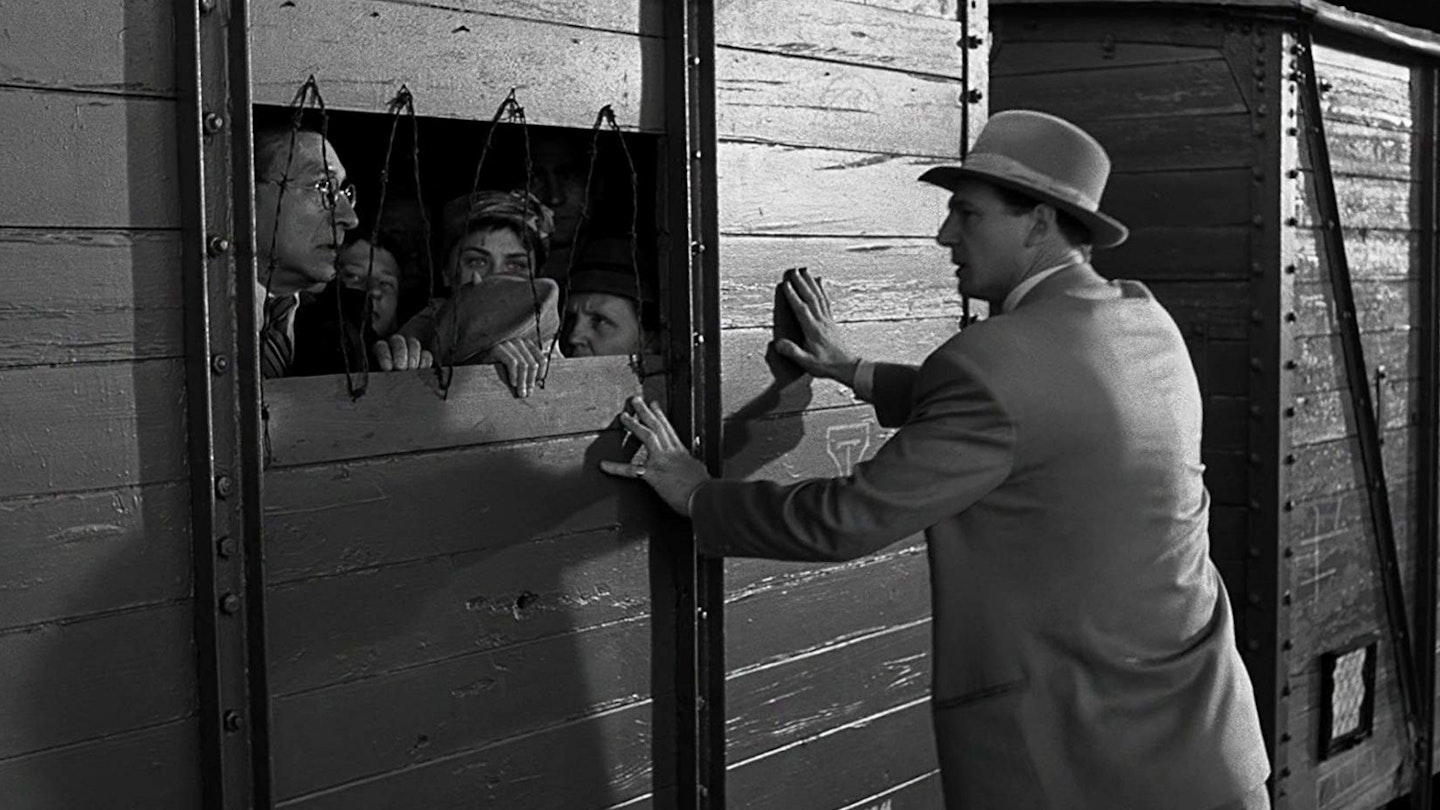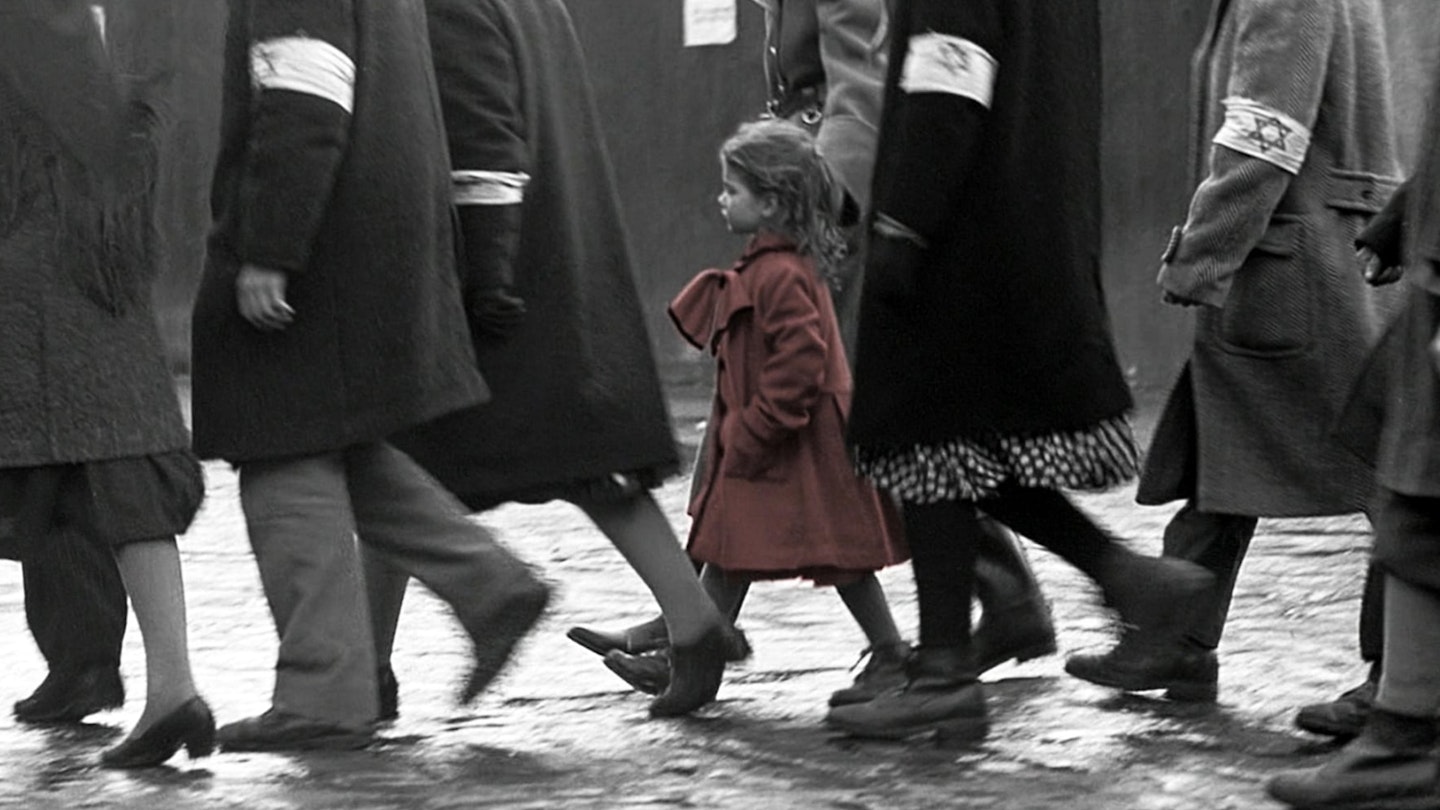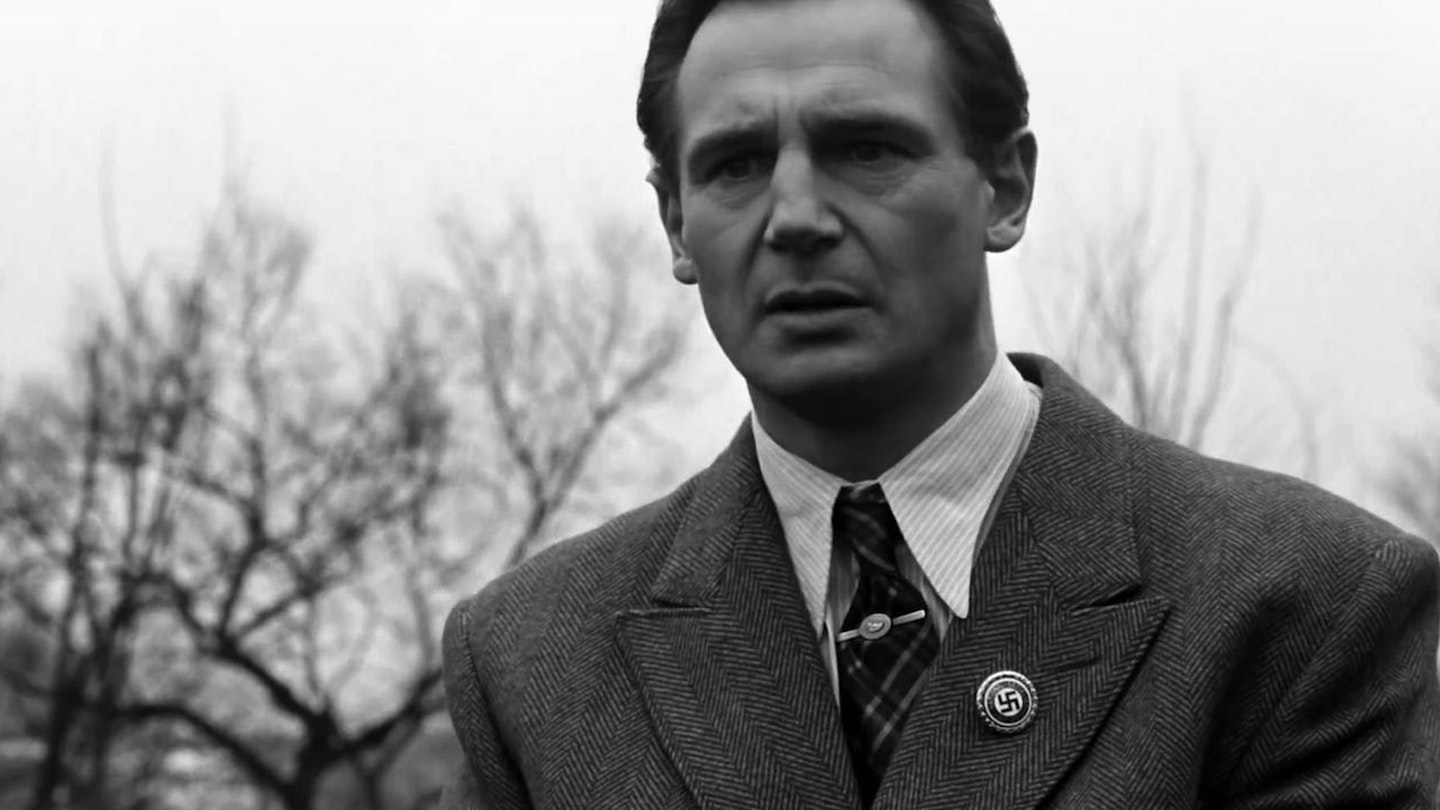For our 30th Anniversary Special Edition issue, we picked the 30 films from the last 30 years that have defined Empire’s lifetime, but some favourites didn’t quite make the cut. Ian Freer argues the case for Schindler’s List.
On the surface, it seems obvious why Schindler’s List didn’t own the 1993 cover in Empire’s list of the 30 films of our lifetime. ’93 was, of course, Steven Spielberg’s annus miraculous, producing the double whammy of Jurassic Park and Schindler’s List in the same twelve months – given that, it is perhaps a no brainer the team plumped for the populist (Jurassic) over the powerful (Schindler’s) in Spielberg’s stellar year. Arriving in February 1994 in the UK (and therefore pipped to the post in the final 30 list by The Shawshank Redemption), even more dumbfounding is that Spielberg’s masterpiece lost out on a cover to the Julia Roberts-starring John Grisham potboiler The Pelican Brief at the time of release. The most important film by the world’s greatest filmmaker was no match for Denzel Washington in a hoodie.

To be fair to Team Empire in 1994, Schindler’s List represented the most uncommercial prospect imaginable. A 197-minute, black and white deep dive into the darkest recesses of human history (the Holocaust) with no stars is not designed to fly off the shelf at WH Smith. The result proved surprisingly engaging ($322 million worldwide and seven Academy Awards, Spielberg’s biggest ever Oscar haul) but the audience silence during the end credits said so much more than the stats. Much was made that it was Spielberg’s first grown up film; it wasn’t, he had been dealing with adult themes through his television days to his first feature The Sugarland Express to The Color Purple. What was new, however, was a commitment to the subject matter. Directing without many of his crutches (storyboards, a crane shot), Spielberg had never been so fiercely engaged, urgently looking to preserve Holocaust history as a way of safeguarding the lessons of the past to act as warnings for the future.
Spielberg understood every frame intellectually, felt every beat emotionally and his depth of passion courses through the film.
Detailing Oskar Schindler (Liam Neeson)’s transition from ruthless industrialist to saviour of 1100 Jews by turning his munitions factory into a safe haven from the Nazis, the result presents, time and again, sequences you will never forget; the joie de vivre as Schindler woos Nazi officials with wine, women and song (‘Funiculì, Funiculà’); the sustained, searing intensity of the liquidation of the Krakow ghetto; the journey of the girl in the red dress (Oliwia Dabrowksa, whom Empire’s Nick de Semlyen assiduously tracked down for a feature in 2006 – she was then studying at music school); the snowfall that isn’t snowfall that marks the step-up in Nazi atrocities; the Schindler women being herded to their seeming death in a shower.
The last time I saw it on the big screen was in January on International Holocaust Day. I was struck by how, for a three hour plus running time, there isn’t a moment wasted, how there’s a briskness and vitality you don’t usually associate with ‘Academy Award Epics’. It’s also a film full of great faces and small detail; Jews hurriedly stuffing family valuables into bread and swallowing them, women rubbing blood into their checks to look healthier and avoid execution, kids hiding in tubs of shit to avoid detection. Few films have more tangible texture around such uncomfortable subject matter.
When I interviewed Spielberg for Ready Player One, he revealed he deeply resented working on the VFX of Jurassic Park during the evenings of Schindler’s shoot in Poland because it was tearing him way from thinking about the matter in hand (“I’ve never said that before,” he admitted). A reflection of his own grappling with his Jewish heritage, Spielberg understood every frame intellectually, felt every beat emotionally and his depth of passion courses through the film. Some things go way beyond velociraptors.

Schindler’s List’s legacy runs from the creation of the USC Shoah Foundation, which has documented 55,000 Holocaust survivors’ testimony, to its use as a teaching aid in German schools – it’s a prism through which to re-examine that oft-shunned period of history. With xenophobic and racist rhetoric on the rise again, Spielberg’s emphatic reconstruction of the systematic slaughter of European Jews has never been more resonant. Schindler’s List is his magnum opus, the film from Empire’s lifetime that for me cuts the deepest, lingers the longest. The film with the prison and the pin-up is terrific, but personally, there’s no contest.
Read Empire's list of the 30 films that define the last 30 years.
READ MORE: The One That Got Away – Star Wars: The Force Awakens
READ MORE: The One That Got Away – True Romance
